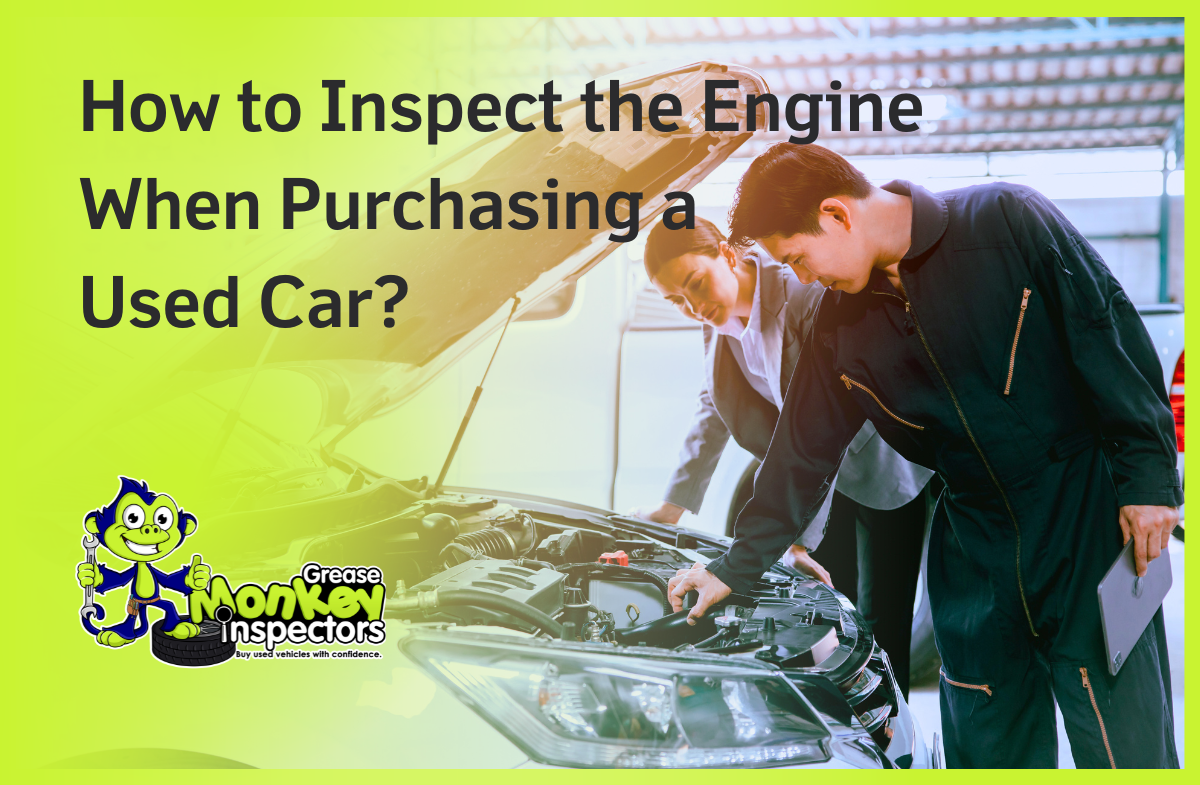Blog Content:
Purchasing a used car is a significant decision that requires careful consideration, especially regarding the engine’s condition. Engine problems can be costly to repair, and evaluating the engine’s mechanical condition during a quick test drive is challenging. At Greasemonkey Inspectors, we recommend having a used car thoroughly inspected by our qualified mechanics before finalizing the purchase. Here are some key pointers to consider when inspecting a used car for engine problems or lack of maintenance.
Examine Service Records
Service records, while not always available, can be highly beneficial. If the dealer or seller can provide proof of regular maintenance, it’s a good sign. Look for oil changes and mileage records. Regular oil changes are crucial as they range from 5,000 km to 30,000 km depending on the manufacturer, and may also be based on time (six months to a year). A vehicle driven for an extended period without an oil change might have internal engine wear. Additionally, check if the timing belt has been changed and other maintenance performed.
Inspect Under the Bonnet
Before inspecting under the bonnet, ensure the engine is off, the transmission is in “Park,” and the parking brake is engaged. Look for leaks, the smell of burnt oil or antifreeze, signs of poor-quality repairs, or ‘racing’ modifications. Remember, a clean engine bay doesn’t necessarily indicate a well-maintained engine. Here are some specific areas to check:
Burnt Oil Smell
Repairing oil leaks can be expensive. As mileage increases, piston rings and cylinders wear out, increasing crankcase pressure and forcing oil out via various seals and gaskets. This issue is more common in turbocharged engines. A well-maintained engine typically doesn’t have leaks.
Visible Oil Leaks
Oil leaks might not be visible from above, so check from underneath. Use your phone to take photos or videos of the engine and transmission’s lower parts. Everything should be completely dry.
Coolant and Other Fluid Leaks
Even if a vehicle runs perfectly, a coolant leak from the radiator requires attention. A cracked radiator can indicate more serious problems, so it’s best to avoid cars with such issues.
Low Oil Level and Contaminated Oil
Check the oil condition using the dipstick while the engine is off. If the oil level is low, it suggests the engine consumes oil or hasn’t had an oil change in a long time. Low oil levels cause faster engine wear.
Performance Modifications
Be cautious with vehicles modified for performance. Properly done modifications can enhance a vehicle, but poorly done ones can cause numerous issues. If the vehicle has been modified, it has likely been raced or otherwise abused.
Timing Belt Check
Some vehicles have a timing chain instead of a belt. Timing belts typically need replacement between 90,000 km and 180,000 km or every 4-8 years. Replacing a timing belt costs between $800-$1800 for a 4-cylinder engine and $2000-$3500 or more for a 6-cylinder engine. Check the service records for timing belt replacement or ask a mechanic to inspect it.
Cold Start
A cold start can reveal hidden engine problems. Arrive at the dealer early to start the engine cold. This will also indicate the battery’s condition. Listen for engine noises and watch for smoke. Blue smoke indicates the engine is burning oil, which is a red flag.
Test Drive
During the test drive, ensure all dashboard warning lights turn off. Any remaining lights, like the Check Engine light, indicate a detected fault. Listen for engine noises, vibrations, or power issues. The engine should run smoothly without shaking or hesitation. Test the vehicle in various modes: acceleration, deceleration, stop-and-go traffic, and highway cruising. The temperature gauge should remain in the middle of the scale once the engine is warm.
Even if everything seems fine, we at Greasemonkey Inspectors strongly advise having the used car inspected by an independent mechanic before purchasing. If you are looking for the best pre-purchase car inspector in Melbourne, contact Greasemonkey Inspectors today! Explore our Inspection Packages for more information.

